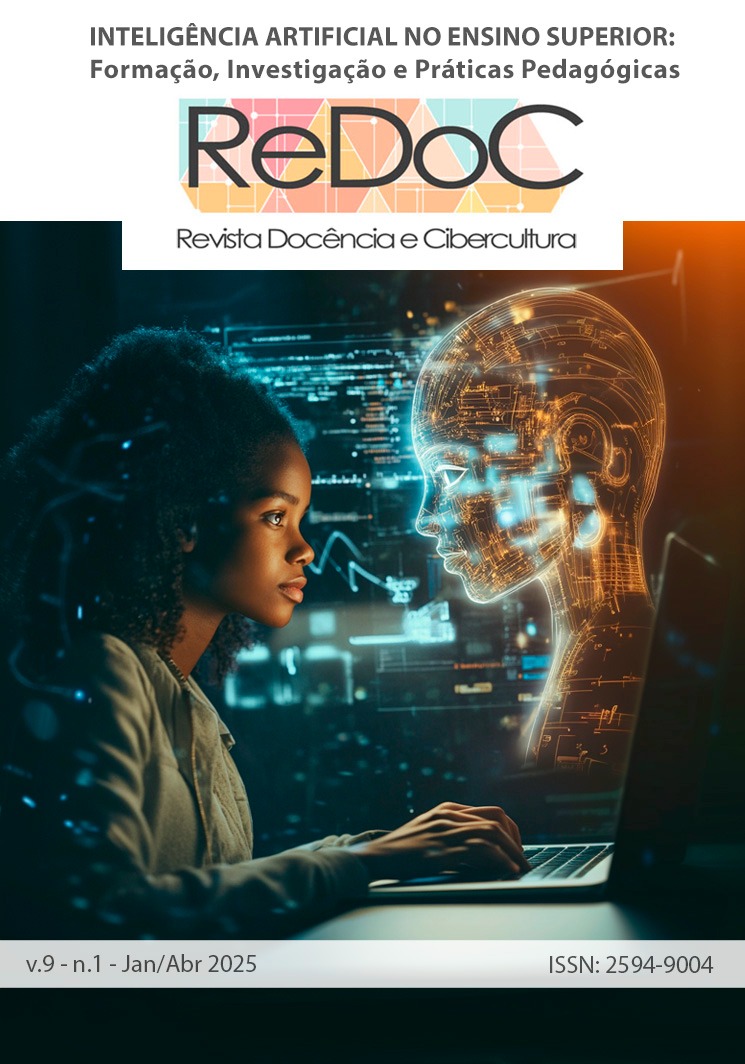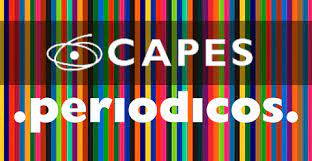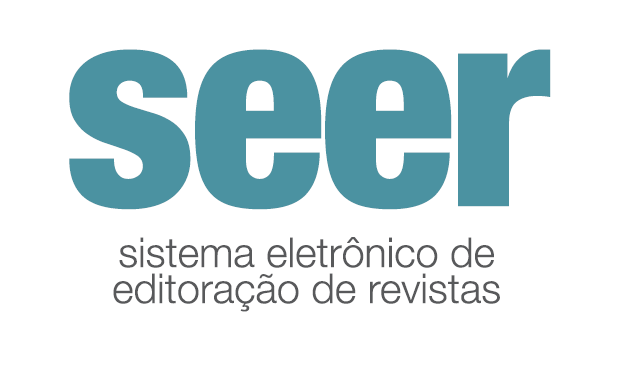IA E O USO DAS IMAGENS NAS APRENDIZAGENS COLABORATIVAS E INCLUSIVAS: UM ESTUDO DE CASO
DOI:
https://doi.org/10.12957/redoc.2024.83216Resumo
Esta narrativa de experiência, transformada em narrativa de pesquisa é fruto uma ação de formação docente colaborativa e participativa conduzida sob o 'Programa de Extensão Pedagogia Diferenciada - Práticas Exitosas do Ensino e da Pesquisa em Educação', da Universidade Federal de Ouro Preto(UFOP). Investigamos o papel da Inteligência Artificial (IA) em fomentar a aprendizagem colaborativa e inclusiva. No centro deste estudo, analisamos a utilização do Bing na criação de imagens, como exemplo, a geração de uma imagem de um Coala, e exploramos a conversão de descrições de imagens em áudio para assistência a pessoas cegas ou com baixa visão. Esta abordagem destaca a flexibilidade da IA na educação, enfatizando sua capacidade de enriquecer recursos didáticos e promover ambientes de aprendizado mais acessíveis e colaborativos. Salientamos o papel fundamental dos(as) educadores(as) na coordenação de processos colaborativos, incentivando a engajamento dos alunos em atividades de resolução de problemas e criatividade. Foram exploradas metodologias educacionais inovadoras, como aprendizagem baseada em projetos, personalizada, colaborativa, por jogos e baseada em competências, com a integração efetiva da IA. A análise dos resultados, embasada nas contribuições dos participantes, permite uma reflexão crítica sobre o uso da IA na educação, destacando seu potencial para fomentar o pensamento crítico e a criatividade. Os feedbacks obtidos evidenciam a relevância de recursos visuais na educação, particularmente para estudantes com dificuldades de atenção. Além disso, discutimos como a interação com a IA, quando adequadamente mediada, pode desenvolver um processo cognitivo dinâmico e inclusivo, beneficiando assim os processos de aprendizagem.
Downloads
Publicado
Como Citar
Edição
Seção
Licença
Copyright (c) 2025 Revista Docência e Cibercultura

Este trabalho está licenciado sob uma licença Creative Commons Attribution-NonCommercial-ShareAlike 4.0 International License.
Autores que publicam nesta revista concordam com os seguintes termos:- Autores mantém os direitos autorais e concedem à revista o direito de primeira publicação, com o trabalho simultaneamente licenciado sob a Creative Commons Attribution License que permitindo o compartilhamento do trabalho com reconhecimento da autoria do trabalho e publicação inicial nesta revista.
- Autores têm autorização para assumir contratos adicionais separadamente, para distribuição não-exclusiva da versão do trabalho publicada nesta revista (ex.: publicar em repositório institucional ou como capítulo de livro), com reconhecimento de autoria e publicação inicial nesta revista.
- Autores têm permissão e são estimulados a publicar e distribuir seu trabalho online (ex.: em repositórios institucionais ou na sua página pessoal) a qualquer ponto antes ou durante o processo editorial, já que isso pode gerar alterações produtivas, bem como aumentar o impacto e a citação do trabalho publicado (Veja O Efeito do Acesso Livre).



















